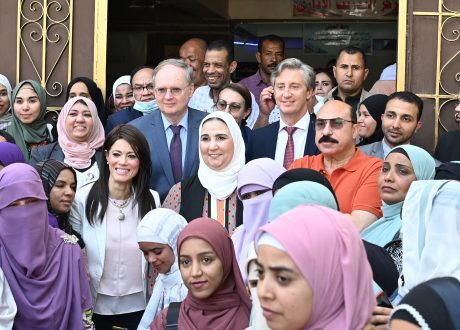Participants will share the lessons learned from different countries related planning to post-conflict reconstruction taking into consideration gender equality.
The European union is funding the joint project “Strengthening the capability in the Arab League Secretariat and its Member States to provide early warning and effective responses to impending regional crises, conflicts, and post-conflict situations, “under which this conference is organized.
The AL secretary general will open the two-day conference together with representatives from UNDP and the European Union ambassador to Egypt.
Ministers from the Arab region, policymakers, decision-makers, and representatives from civil society from AL member states including Egypt, Iraq, Jordan, Lebanon, Libya, Palestine, Somalia, Syria, Tunisia and Yemen will participate in the conference. Academics and researchers will also attend to share knowledge and best cross-regional practices related to post-conflict situations from the region and beyond.
The United Nations Security Council Resolution 1325 (2000) was the first global document to develop a link between gender, sustainable peace and security maintenance. In this context, the conference aims to discuss the current trends for women’s participation in social, economic, and political aspects at the regional level and to explore the ways that can enhance the ability of women in the Arab region to engage effectively in peace processes. In addition, the conference will encourage participants to share experiences and perspectives from different countries and suggest recommendations to promote the role of women in post-conflict countries.



اترك تعليقا